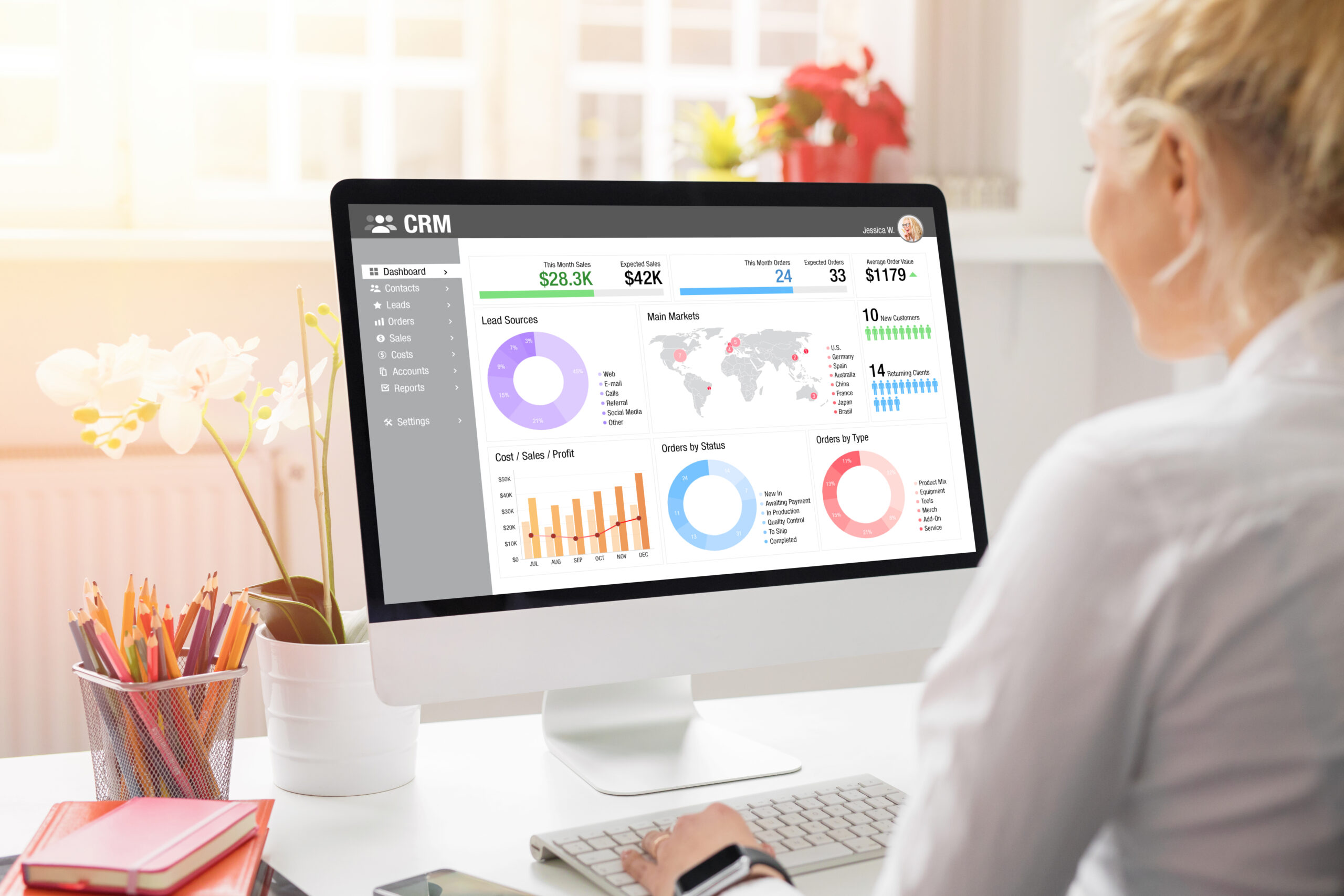
Customer relationship management (CRM) software and sales management software are two of the strongest tools a modern sales team should have. Both can drive sales and customer retention, but are they necessary if you already have a strong sales force?
With information readily available on the internet, consumers do their own research instead of relying solely on salespeople to solve their problems. A recent study by Gartner shows 44% of buyers prefer a seller-free sales experience, with millennial buyers expected to cut out the middleman in just a few years.
Sales teams should up their digital games to reach today’s generation of buyers. Implementing CRM and sales management software automates processes and gives sellers a wealth of data, both of which help sales teams to save time and learn more about their prospects.
Often thought to be synonymous, CRM and sales management software perform different functions. CRM is a database of leads, prospects, and clients; sales management software analyzes a sales team’s performance. But which works better for a company? And can you choose one, or do you need both? Let’s look more closely at each one.
What does CRM software do?
Customer relationship management (CRM) software processes your list of contacts and organizes it into buckets of leads, prospects, and customers. CRM pieces together details from information collected from each person or business, which becomes the data that sales representatives need to turn leads into prospects and prospects into customers.
This is more than just a collection of contact information: CRM also gathers pertinent details related to the customer’s current connection to the company, including any recent interaction. For instance, has the customer bought anything lately? What problems have they shared with the company? Have they complained about a product or service?
This information gives sales teams a big-picture look at the customers and their working relationship with the company. Armed with this knowledge, sales agents can better interact with the customer, increasing their chances of moving the buyer’s journey forward.
What does sales management software do?
Sales management software’s goal is to make sales operations more efficient. In contrast to CRM’s customer-facing system, sales management software is more concerned with internal processes.
This software tool is a major part of the sales manager’s arsenal. It covers all aspects of managing a sales team, including organizing, recruiting, and training a team. In addition, sales management software helps plan and coordinate regular sales activities and the occasional sales event.
A big part of a sales manager’s job is to monitor salespeople’s daily activities to ensure each member is maximizing opportunities to help the team achieve its goals. Is the salesperson spending too much time on administrative tasks that prevent them from visiting clients? Are they spending too much time with a single client without showing proportionate results? Sales management software can track data based on salespeople’s daily activities, which the manager can then use to identify bottlenecks and improve efficiency.
CRM vs. sales management software: pros and cons
Both CRM and sales management software depend on information that must be entered manually. The quality, quantity, and accuracy of information in both tools will determine the quality of the insights generated. Here are some pros and cons of each.
It’s CRM for me
As the name implies, customer relationship management software is entirely focused on the customer. Its strength is knowing a great deal about clients, including their profile, purchase history, and documented complaints. That’s a big plus that makes it easier for sales and customer service teams to communicate with known clients and develop strategies that can sway them into buying.
The challenge with CRM software is getting all that information into the system. In the initial stages especially, users will need to manually enter a lot of information about their clients, which busy sales teams may find burdensome. CRM can also be quite pricey for a small- or medium-sized business, so it may take some time for the company to generate returns from this sizable investment.
Once up and running though, CRM software can provide invaluable insights into your customer base, which sales agents can then use to close deals.
It’s sales management software for me
Sales management software focuses on how each salesperson operates. Managers can compare their sales agents’ day-to-day activities with their sales accomplishments to determine whether the reps are making good use of their time and effort. Both management and individual sales agents benefit from the software’s insights, which is a big plus for organizations focused on increasing sales efficiencies.
In addition, sales management software helps management solidify its plan of action for its sales team. Each member of the organization can understand their specific role in achieving the company’s goals for the quarter or year, preventing any miscommunication or confusion.
There are downsides to the system as well. The search for improvement can take a toll even on successful sales representatives, and tight performance tracking tends to be less forgiving of non-performers or salespersons experiencing a slump. In extreme cases, sales management software can turn into a digital scoreboard in an elimination game.
CRM and sales management: do you need both?
Both CRM and sales management software have their own camps of supporters. Companies looking inward for better efficiency will almost always prefer sales management software, while CRM puts customers more in focus. Prioritize your areas for improvement first, then choose the software that best meets your needs.
If you can afford both types of software – especially as part of an Enterprise Resource Planning (ERP) suite – your sales team will be able to support all stages of the buyer’s journey, from initial inquiry to post-sales support. For those not ready to commit to an enterprise solution there are cloud-based software products that offer both CRM functions and sales management tools.
You can’t go wrong with either sales management software or CRM; it’s simply a matter of identifying your specific needs and your available resources.
Achieve sales success with the right tools
Rather than choosing one over the other, businesses with heavy field sales activities should consider Skynamo, which combines CRM and sales management into one powerful platform. Skynamo gives field sales representatives the accurate data they need to service their clients, even when out on sales calls, while also providing managers with the tools to track their teams and identify areas for improvement.
Learn more about how Skynamo can change the way your field sales team operates. We’d be more than happy to arrange a free demonstration.


